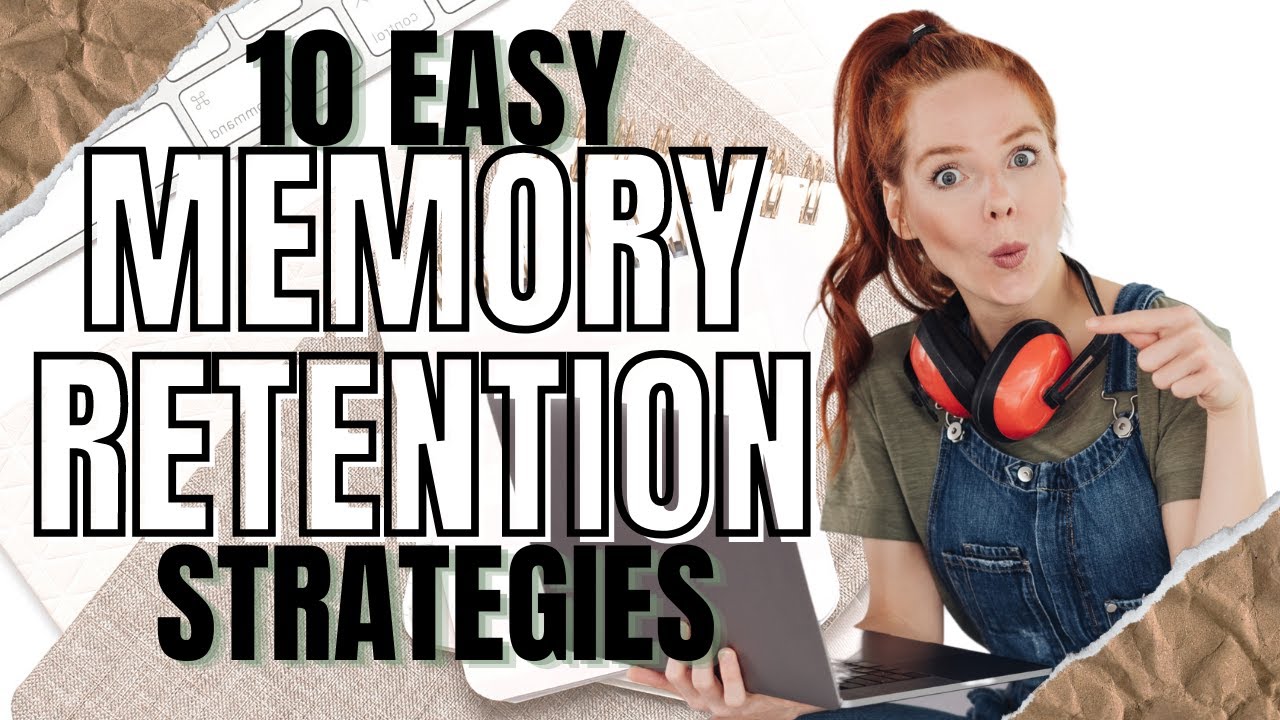Memory retention is crucial for academic success, professional performance, and overall cognitive health. Enhancing your ability to retain and recall information can have profound impacts on your daily life and long-term goals. This comprehensive guide outlines effective strategies for improving memory retention, integrating insights from psychology, neuroscience, and practical experience.
Best Strategies for Improving Memory Retention is below no 1
Understanding Memory

Memory is the cognitive function that allows us to store, retain, and retrieve information. It’s typically divided into three main types:
- Sensory Memory: Briefly holds sensory information.
- Short-Term Memory: Temporarily holds information for processing.
- Long-Term Memory: Stores information indefinitely.
Understanding these types can help in developing targeted strategies to enhance each stage of memory processing.
Best Strategies for Improving Memory Retention no 2
Healthy Lifestyle Choices

Maintaining a healthy lifestyle is foundational for optimal brain function and memory retention. Here are some key elements:
Nutrition
- Balanced Diet: Consume a diet rich in fruits, vegetables, lean proteins, and healthy fats.
- Hydration: Stay adequately hydrated to ensure optimal brain function.
- Omega-3 Fatty Acids: Found in fish, flaxseed, and walnuts, these are essential for brain health.
- Antioxidants: Berries, dark chocolate, and nuts can protect brain cells from damage.
Exercise
- Regular Physical Activity: Enhances blood flow to the brain and promotes neurogenesis (the creation of new neurons).
- Aerobic Exercises: Such as walking, running, or swimming, are particularly beneficial.
Sleep
- Quality Sleep: Crucial for memory consolidation. Aim for 7-9 hours of sleep per night.
- Sleep Hygiene: Maintain a regular sleep schedule and create a restful sleeping environment.
Best Strategies for Improving Memory Retention no 3
Effective Learning Techniques

Adopting effective learning strategies can significantly enhance memory retention. Here are some evidence-based techniques:
Spaced Repetition
- Interval Learning: Distribute learning sessions over time rather than cramming.
- Flashcards: Use tools like Anki or Quizlet to practice spaced repetition.
Active Learning
- Engage with Material: Ask questions, summarize information, and teach others.
- Self-Testing: Regularly quiz yourself to reinforce learning.
Mnemonics
- Acronyms and Acrostics: Create memorable phrases or words to aid recall.
- Visualization: Form mental images associated with the information.
Elaborative Rehearsal
- Deep Processing: Relate new information to what you already know.
- Examples and Applications: Think of real-life examples to make information more relevant.
Best Strategies for Improving Memory Retention no 4
Cognitive Exercises

Engaging in activities that challenge your brain can enhance memory and cognitive function:
Puzzles and Games
- Crosswords and Sudoku: Stimulate different areas of the brain.
- Memory Games: Apps and online games designed to improve memory.
Learning New Skills
- Languages: Learning a new language can boost cognitive function.
- Musical Instruments: Playing an instrument involves multiple cognitive processes.
Reading and Writing
- Books and Articles: Regular reading expands knowledge and improves memory.
- Journaling: Writing about your experiences and reflections can enhance memory retention.
Best Strategies for Improving Memory Retention no 5
Technological Tools

Leveraging technology can offer new ways to improve memory retention:
Apps
- Brain Training Apps: Lumosity, CogniFit, and Elevate offer exercises designed to improve memory.
- Note-Taking Apps: Evernote, OneNote, and Notion help organize and recall information.
Online Courses
- Educational Platforms: Websites like Coursera, Udemy, and Khan Academy offer courses that challenge and enhance memory.
Digital Reminders
- Calendar and Task Apps: Google Calendar, Todoist, and Trello help keep track of important dates and tasks.
Social and Emotional Factors
Your social environment and emotional state can significantly influence memory retention:
Social Interaction
- Engage with Others: Socializing can stimulate cognitive processes and memory.
- Group Learning: Study groups can provide support and enhance learning.
Stress Management
- Mindfulness and Meditation: Practices that reduce stress can improve memory function.
- Time Management: Effective time management can reduce stress and improve focus.
Emotional Health
- Positive Attitude: Maintaining a positive outlook can enhance cognitive function.
- Therapy and Counseling: Seeking professional help for emotional issues can improve overall mental health.
Conclusion
Improving memory retention is a multifaceted endeavor that involves lifestyle choices, learning techniques, cognitive exercises, technological tools, and social factors. By incorporating these strategies into your daily routine, you can enhance your ability to retain and recall information, leading to better academic performance, professional success, and overall cognitive health.
Table: Comparison of Memory Improvement Strategies
| Strategy | Description | Benefits |
|---|---|---|
| Nutrition | Balanced diet, hydration, omega-3s, antioxidants | Improved brain function and protection |
| Exercise | Regular physical activity, aerobic exercises | Enhanced blood flow and neurogenesis |
| Sleep | Quality sleep, sleep hygiene | Memory consolidation and cognitive rest |
| Spaced Repetition | Distributed learning sessions, flashcards | Long-term retention and recall |
| Active Learning | Engaging with material, self-testing | Deeper understanding and memory |
| Mnemonics | Acronyms, acrostics, visualization | Easier recall of complex information |
| Elaborative Rehearsal | Relating new info to existing knowledge, examples | Improved memory and understanding |
| Puzzles and Games | Crosswords, Sudoku, memory games | Cognitive stimulation |
| Learning New Skills | Languages, musical instruments | Enhanced cognitive function |
| Reading and Writing | Books, articles, journaling | Expanded knowledge and better memory |
| Apps | Brain training, note-taking | Organized learning and memory exercises |
| Social Interaction | Engaging with others, group learning | Cognitive stimulation and support |
| Stress Management | Mindfulness, time management | Reduced stress and improved focus |
| Emotional Health | Positive attitude, therapy | Better mental health and memory |





